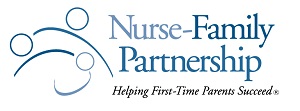Nurse Family Partnership (NFP) is an evidence-based home visitation program for first-time parents. As a nurse home visitor with NFP in Lancaster County, I see shortages of diapers and menstrual hygiene products in homes every day.
The financial stress that these products can hold over families is only growing, and limited help exists in our community.
In 2022, 9.8% of children in Lancaster County were living in poverty. Females ages 18 to 44 — the age range when these products are most needed — were the largest adult demographic living in poverty.

On average, families spend $80 to $100 per month on diapers and $20 a month on feminine products. Period poverty and diaper needs are forcing families to choose between these items and food.
Without these products, family members cannot attend work or daycare. They are at an increased risk of infections, leading to higher healthcare costs. The social stigma alone worsens mental health and well-being.
I’ve seen clients use diapers that are too small for their children because it’s all they have, or use larger sizes, so they last longer without leaking. I’ve seen parents struggle to put food on the table because they had to buy diapers that week.
I’ve handed women packs of pads or tampons and seen tears in their eyes. This should not be a reality for so many families and we need to recognize the impact this has on our neighbors.
Over the past three years as a nurse in our community, I’ve searched for resources. A few organizations in Lancaster supply a limited number of diapers to families. These organizations provide them as an incentive to attend classes or other programming, which is often not possible for working parents.
Diaper banks have popped up across the U.S. to meet part of this need, but Lancaster does not have one. Help with feminine hygiene products is even harder to come by locally.
My job as a community health nurse is to help families meet their basic needs. It should not be this difficult.
A bill pending in Pennsylvania’s Senate, HB 850, aims to address the need. If the federal government allows it, the bill would allow people to buy diapers and menstrual hygiene products through the Supplemental Nutrition Assistance Program (SNAP), also known as food stamps; and the Women, Infants & Children (WIC) Program.
Currently, diapers and menstrual products aren’t eligible purchases under federal SNAP and WIC rules, so the feds would have to offer states a waiver. If it does, HB 850 would require Pennsylvania to apply for the waiver and implement it if granted.
The Pa. House introduced and passed HB 850 in July. It is now sitting in the Pa. Senate Health and Human Services Committee.
Allowing diaper purchases through SNAP and WIC would help our youngest and most vulnerable community members at modest cost. According to the National Diaper Bank Network, about 400,000 Pennsylvania children are under the age of 3, and 19% of them live in families that would meet the income requirements. About 22% of WIC enrollees and 11% of SNAP enrollees are under age 5.
Some people might argue that we should not combine material needs with tightly budgeted nutritional programs. I think that is a valid concern. However, by providing waivers through existing programs, we can quickly reach more families without reinventing the wheel. Another benefit to a waiver program over cash is the ability to directly measure use.
Income limits for WIC and SNAP are higher than for cash assistance (i.e., the Temporary Assistance for Needy Families program, or TANF), allowing more families to receive help.
Others may feel that providing diapers is “subsidizing” irresponsible childbearing choices. That stems from the incorrect theory of “welfare dependency.” It is time for beliefs about dependency on social programs to catch up with the data: Evidence clearly shows that assistance programs do not lend to people working less. Providing aid to families in poverty fosters upward mobility, which over time creates an opportunity for generational changes.
Diapers and menstrual hygiene products are necessities, not luxuries. We need to treat them as such. Our neighbors need help.
Please consider contacting the Pennsylvania Senate Health and Human Services Committee to express support for HB 850. Please also consider contacting Lancaster County’s two state senators, Ryan Aument and Scott Martin.






